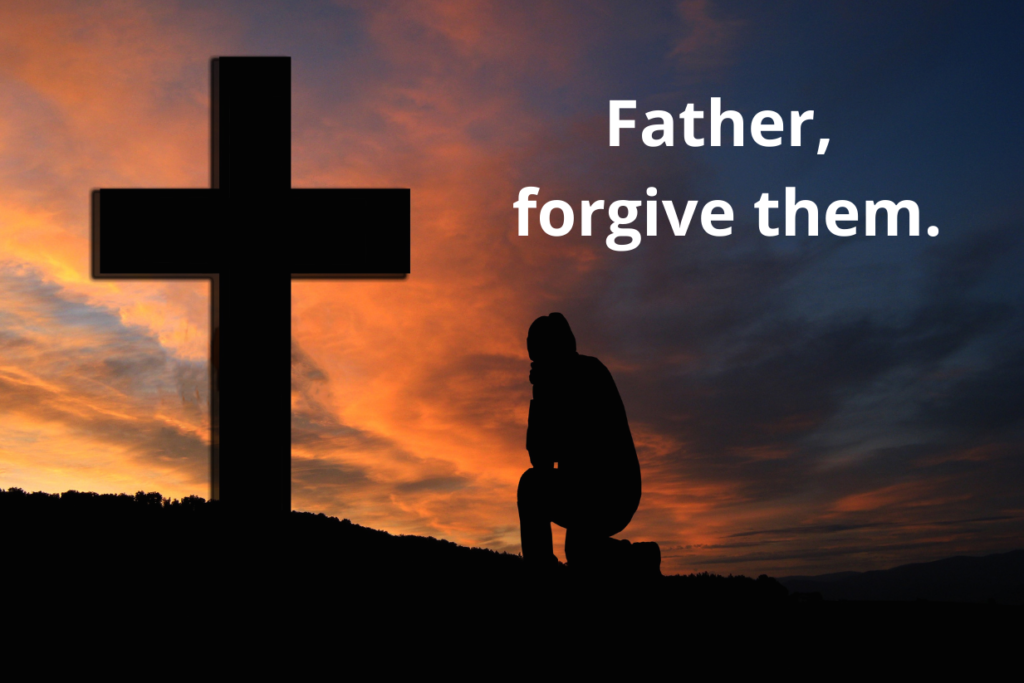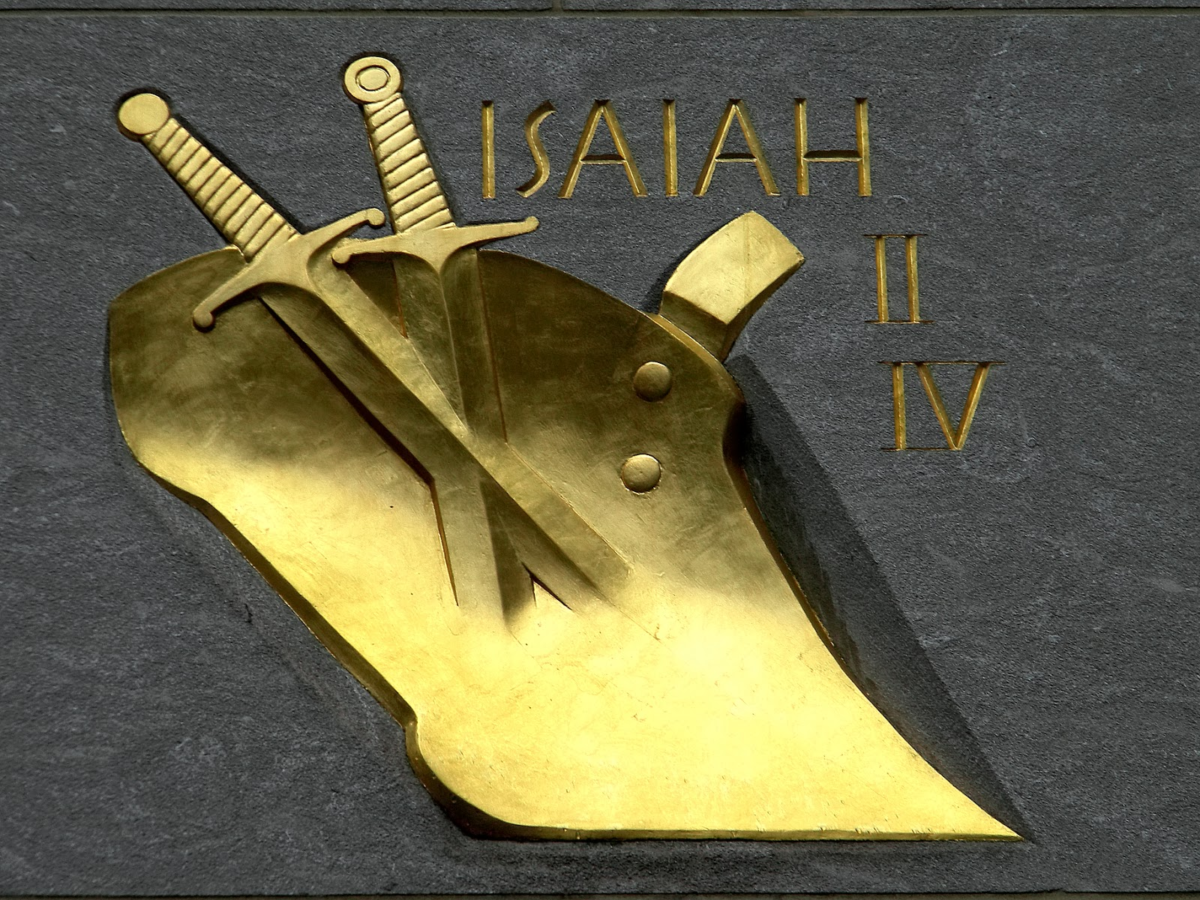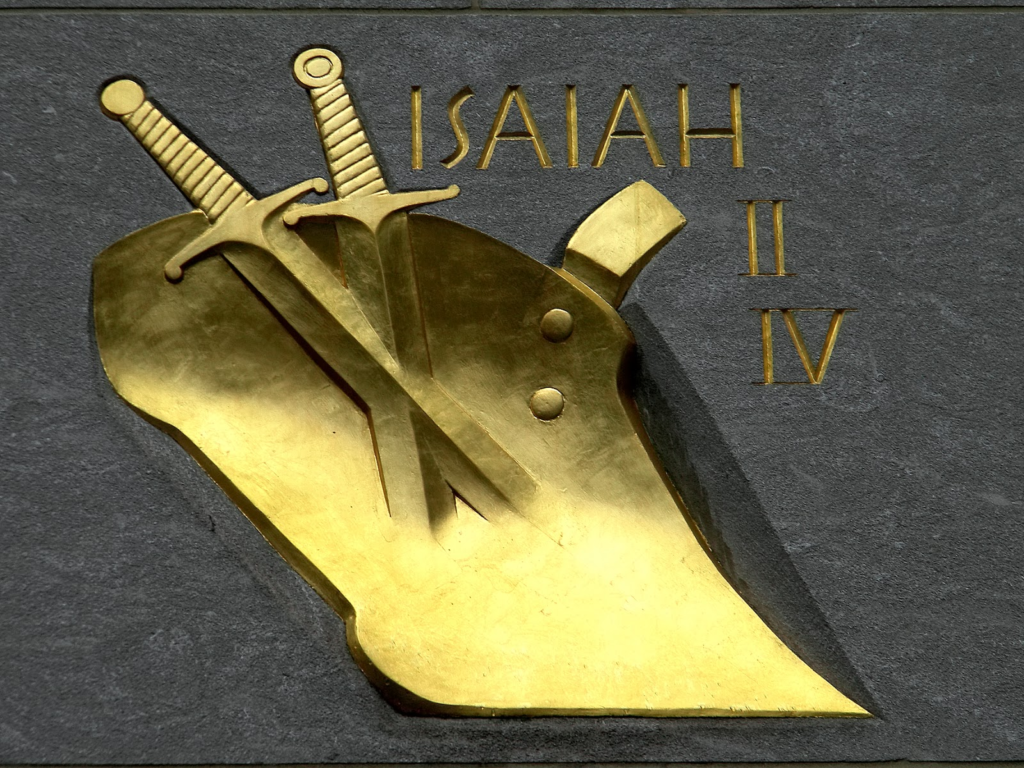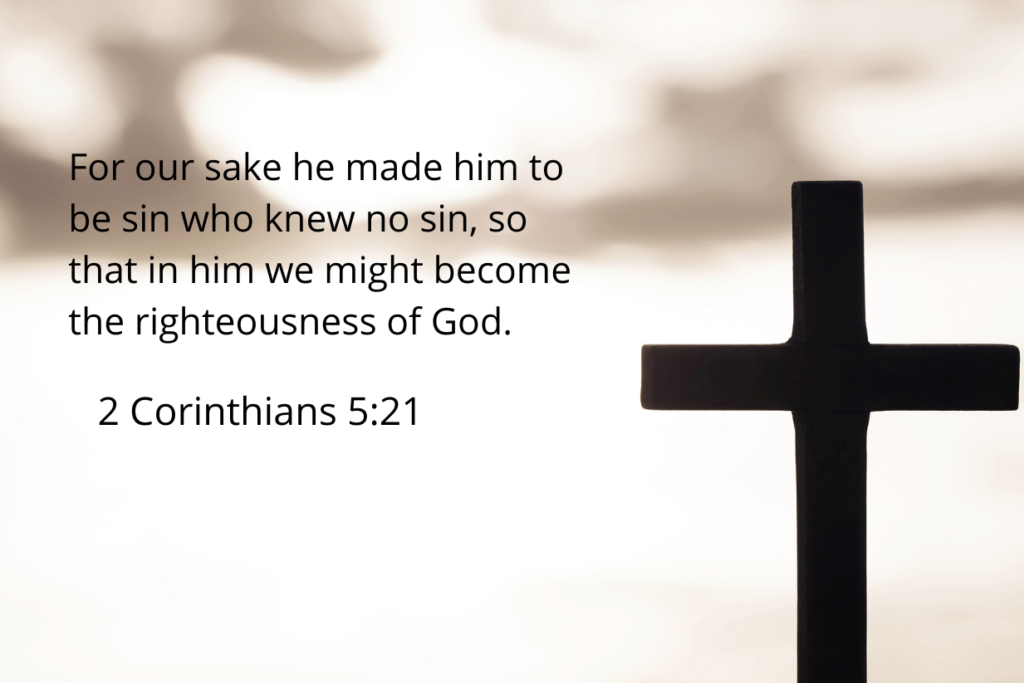Co-missioners,
Lent is less than a week away. With that in mind we send you some homework for a Lenten assignment. It’s a rerun in two parts—half this week, half next—of an eighteen year old essay by Ed Schroeder that invites some repentance, as in “rethinking,” a “re-forming of the mind.” Metanoia in Greek. As when God “repented of the evil” that he had thought to unleash on his people as they danced around the golden calf (Ex. 32:14, KJV, RSV; cf. Jonah 3:10, same versions).
Speaking of things bovine: Ed pokes in this essay at an idea that enjoys sacred-cow status in left-leaning Protestant circles these days. What he writes is sure to cause offense, as will we in republishing it. No matter. The Lord we serve was a specialist in upending settled opinion. He still is, his crucifixion notwithstanding.
Which brings us to the Lenten angle, and specifically to the question that Lent pushes us to revisit in depth year after year. Why was Jesus crucified? What project did God have in mind when he dispatched his Christ to that fate? These are precisely the questions that Ed tackles here, with Luther framing the argument. We expect that what he says would provoke some lively discussion within our own Crossings circles these days. For your part, we urge you to chew on it this Lent. If so inclined, let us know what you think—or catch yourself re-thinking—via a note to our editor, Jerry Burce.
More on this topic, we hope, as the season goes by.
Peace and Joy,
The Crossings Community
__________________________________________________________________
The “Peace-and-Justice” Mantra
by Edward H. Schroeder
(First published on December 9, 2004 as Thursday Theology #339)
In last Sunday’s worship in our congregation we were encouraged to join Jesus in his “ministry of peace and justice” for the world. For a long while I’ve been scratching my head when those words appear in preaching and in prayer. They pop up everywhere in Christian language these days. They’ve become a mantra. Everybody’s for peace and justice. Jesus was working for peace and justice. Christ’s disciples are called to create a world of peace and justice.
Sez who?
When did that doublet, peace and justice, become such an automatic mantra in Christian rhetoric? When did it become so p.c.? And why? Concretely, what are we praying for when we mention the doublet? Did Jesus ever designate his own ministry as peace and justice? And if not, why not?
My thesis is: The ministry of the Mangered Messiah was NOT the ministry of peace and justice that this mantra invokes these days.
Here’s some support for the thesis. What folks seem to have in mind when commending “peace and justice,” is (to use Luther’s Biblical imagery) assigned by God to his agents of the left hand. The godly agenda of these left-hand agents is civil righteousness in God’s old creation. Though peace and justice are indeed good and godly, they are not assigned to Jesus at all. To stick with Luther’s image of the ambidextrous deity, Jesus is God’s right-hand man. His assignment is God’s right-hand task that none of God’s left-handers ever did fulfill, nor could fulfill. In Christ God was reconciling the world to himself—a.k.a. getting sinners forgiven. As God’s original, only-begotten, right-hander, it’s no surprise that after fulfilling his assignment he now “sits at the right hand of God the Father almighty” with authorization to be on the bench on Judgment Day.
I don’t know how to research the question: “WHEN did this peace-and-justice combo become the p.c. language for Christian action, for Christian prayer?” I know it wasn’t around when I was a kid. So I’ll go with some hunches. It became vogue when the notion of the Kingdom of God moved away from its native focus (in the New Testament) on God’s promise in Christ to forgive sinners, and came to be understood as God’s program for world renewal. The self-understood referents for peace and justice—as I listen to contemporary religious rhetoric—is for a world where folks live without warfare, where swords become plowshares, and where equitable justice reigns among peoples. Here’s my crass claim: Never once does any New Testament text predicate that agenda to Jesus. His job is to get sinners forgiven, get lost children back to their Father, get the task of God-sinner reconciliation done. Jesus’ job is “God-relations.” The peace and justice mantra is all about “human relations.” God-relations is Jesus’ full-time job. He dedicates his entire life to it. Key word is promise, not program.
Not too long ago one of you dear colleagues, a guest writer for ThTh postings in the past, suggested that I was possibly “stuck” on the God-sinner reconciliation agenda and not framing the Kingdom of God broadly enough. You told me: “The promises of the coming kingdom in the prophets are much more than forgiveness; they also are about abundant food, water in the wilderness, the liberation of slaves and exiles, healing of the lame, blind, and deaf, coming home to one’s land and occupation, and peace between peoples.”

By Edward Hicks – http://www.terraamericanart.org/collections/, Public Domain, https://commons.wikimedia.org/w/index.php?curid=7506993
Which prompted this reply:
- And none of that ever happened anywhere in the Old Testament except in very isolated instances, did it? And even at the hand of Jesus after individual “signs” of healing the lame, blind and deaf, there was no general improvement in the public health in that corner of the Roman Empire. Where IN REAL HISTORY did the prophets’ “peaceable kingdom” ever show up? Even after Jesus came, it didn’t happen either. He himself didn’t restore any Eden-Garden anywhere before his departure when he was “in charge.” And after his departure (when he still is “in charge” as the Dominus of 2004 years of Anno Domini) it never happened either, except here and there, and then still ephemeral. When Constantine declared the Roman Empire “Christian,” there is no evidence that I know of about “peace and justice” improving anywhere in the realm. And when later the HOLY Roman Empire came on the scene, loaded with Christian premises, peace and justice remained as iffy as it had been before.
- So unless Jesus was conning us all with his kingdom talk, his kingdom must have been about something else. And of course it was. His kingdom is NOT what the prophets were talking about with the items mentioned above. His kingdom was what the prophets couldn’t deliver, even super-prophet Moses. That’s the whole point of the Jesus-and-Moses contrast in John 6. Forgiveness of sinners (=Life that lasts, that can lick death) is what Moses’ bread was unable to do. Jesus’ mission was different. Radically different. Jesus claims his bread is to get sinners to live forever. It’s a promise in God-relations, not a program in human-relations. And in John 6 the evangelist wants us to understand that the “Moses manna” is not just the morning edibles the Israelites gathered in the Sinai, but the “Manna” of Sinaitic Torah. Patently the morning edibles didn’t get sinners forgiven, but neither could the bread of Sinai’s covenant. It couldn’t get sinners un-sinned; it couldn’t offer them the bread for life that lasts.
- My respondent continued: “Wouldn’t it be good to hear on Sunday mornings what Norman Borlaug did with Mexipak wheat fueling the Green Revolution, what Dag Hammarskjöld did for peace in the Congo, how Florence Nightingale with her good deaconess training helped to reform nursing, and how liberationists of various stripes worked for land reform, and how Wilberforce worked to end the slave trade and even folks like Charles Colson worked to bring hope to folks sitting in prison? Yes, these people are some of the vehicles through whom Christ carried out his promises of bringing the kingdom.”
To which I replied: Couldn’t disagree more with your last sentence. We must make distinctions. (That’s a Lutheran mantra!) All that great good stuff by these great people is God’s good left-hand work. None of it is ever assigned to the Incarnate Logos as his agenda according to the New Testament gospels. I’m reminded of one specific text, Luke 12:13. Jesus gets asked to adjudicate a legal conflict between two brothers. He opts out. “Not my job,” he says. “Friend, who set me to be a judge or arbitrator over you?” And if he did speak a second sentence, it might have been: “My Father has assigned such peace and justice work to other agents. I’m on a different assignment—to help both you guys become rich toward God.” Those last three words conclude the parable that follows. Jesus’ work is God-relations. God’s southpaws work in human-relations. If Jesus refuses to take on the ministry of left-hand peace and justice, who “sets us” to rewrite his assignment?
- The great left-hand work of these great folks—Borlaug, Hammarskjöld and Nightingale—was not Christ’s kingdom. Or if it was, then the evidence to document that is personal confessions—of sin and of faith. “God, be merciful to me a sinner. Lord I believe; Help thou mine unbelief.” One signal that such good and great stuff of peace and justice is left-hand stuff is that it didn’t last. The Green Revolution has become a mixed-bag. The Congo is chaos again. Where is there land-reform that has made a lasting difference? The slave trade, e.g., worldwide sex slavery, is back again with a vengeance, etc.

This is not to say these heroes should not have done it. Nor to denigrate their great efforts—and benefits. Rather to rejoice that in these instances—even if just for a while, the “care” part of the offertory collect about “care and redemption of all that you God have made” did actually happen. But then to go on to say that even with such courageous left-hand work, the Kingdom Christ brings did not show up there. It does not, it cannot, appear through God’s left-hand agencies. Only one agency brings that kingdom, God’s NEW management systems for sinners, viz., “That repentance and forgiveness of sins be preached in his name.” And when that agency elicits a trust-response, THERE the Kingdom comes that Christ was sent to effect. It’s also in the Johannine “great commission” (Jn. 20:21ff.)—”As the Father sent me, so send I you. If you forgive the sins of any, for them God’s forgiveness happens! And if you, or somebody else, doesn’t do it, it never happens.”
—to be continued
Thursday Theology: that the benefits of Christ be put to use
A publication of the Crossings Community






You must be logged in to post a comment.